Reviews
Nati Baratz
Israel, 2008
Credits
Review by Katherine Follett
Posted on 20 May 2009
Source 35mm print
Categories The 2009 Independent Film Festival of Boston
When Zen master Geshe Lama Konchong died of natural causes in his mid-80s, his closest disciple, Tenzin Zopa, was charged with finding the new body into which, as Buddhists believe, the enlightened man had generously reincarnated himself in order to continue his teachings on Earth. Tenzin sets out to find the reincarnated master, who, born after the master’s death, will necessarily be less than 18 months old. Though barely a toddler, the child will be taken from his parents to be raised in a monastery. This incredibly strange and powerfully emotional journey is the subject of Unmistaken Child, a documentary by Israeli director Nati Baratz.
Tenzin is an unassuming man. He can scarcely believe he would be considered important enough to, as he sees it, shepherd his mentor’s soul through the beginning of its next incarnation. Tenzin is quickly drawn into the upper reaches of the Buddhist hierarchy, where the powers that be tell him how to find this supposed master among dozens of ordinary children. They send him on a journey guided by an astrologist (“His father’s name will begin with A,” he says, almost as if he were doing a reading on Crossing Over with John Edward) that happens to take him into the very remote villages of his own childhood, where he first encountered Geshe Lama Konchong at a mountain meditation retreat. Tenzin’s journey also takes him into his own memory, and into his grief. He considered Geshe Lama Konchong as nearly a father, and many times as he visits his old haunts, he is simply overcome with sadness and loneliness for his friend. But always dutiful, Tenzin finds the tiny, dark, smoky stone houses nestled among the unimaginably towering Himalayas, searching for children of the right age.
If nothing else, this documentary is a wonderful record of an ancient culture still surviving without too much Western influence. Though there is a stray English-lettered t-shirt here and there and Tenzin enjoys new, brand-name winter gear in the mountains, the families he visits are universally rough and wind-burned, though healthy, and obviously still reliant on traditional ways. Tenzin spends a lot of time playing with fat-cheeked babies, dangling his master’s rosaries in front of their faces, looking for some spark of recognition. There is one child who immediately wraps the beads around his neck and refuses to let go. Tenzin takes this as a sign that the boy is his reincarnated master, though never states aloud whether he believes this is so. Though Tenzin does seem loyal to the beliefs of his order, the discovery of this boy does very little for his sense of loss—the loss of a wise, elderly man, not a little boy, no matter how precocious. Yet he obediently carries on with his task, his patience and quiet sense of humor allowing him to carry on.
Like Tenzin, the film refrains from comment as the monk and the little boy start along the painful journey of separating the child from the only life he has ever known. Westerners often think of Buddhism as the chill religion. No paternal deities, no Judeo-Christian prudishness, no violent evangelism. It’s all meditation, strange singing, colorful robes, the Dali Lama, “Free Tibet” bumper stickers. So it’s disappointing to find that Buddhism in its native land does rely on superstition and bureaucracy as much as any other faith, and that its tenants, built on ideas as unconfirmed as papal infallibility or the holy spirit, can also cause incredible emotional pain. The boy, still with his family, is taken to southern India to visit he Dali Lama and confirm his status. The child is understandably bewildered, being taken from a cold, windswept stone village of maybe sixty people to the humid, crushing crowd of southern India. The high-up monks take it as a good sign that he remains mostly calm and well behaved. He only truly protests when they must shave his head, and then he acts unmistakably like a very unhappy little boy. Tenzin, whom he calls “Big Uncle,” comforts him. It’s clear that the monk cares about the boy and wishes him no harm, even as his actions obviously do distress the child. The Dali Lama agrees that the child is, in fact, the reincarnated lama. A parade of the faithful passes by the boy to have scarves wrapped around their necks and blessings placed on their foreheads. The boy, still young enough to be barely walking and talking, now has the public duties of royalty, and almost immediately adopts the same sort of glazed, dutiful look. We understand that this is only the first day of the boy’s new, long life of service and sacrifice.
The child is brought back to the monastery, where he will have to live with “Big Uncle.” In the film’s most wrenching scene, the boy’s parents depart. His mother, swallowing a mixture of pride and utter despair, composes herself with only a tiny lip-wobble betraying her heartbreak. “When do I go?” asks the child as his parents leave and the gates close behind them. “When will I go home? Can I go home now?” Tenzin patiently explains that the monastery will be his home now, as it became Tenzin’s home when he, as a boy of six, (voluntarily) left his family to study with the man he idolized—the man he now supposedly believes to be within this boy’s body. This explanation, of course, does nothing to assuage the child’s grief, as the boy’s presence has done little to assuage Tenzin’s. But life goes on, and the monk and the boy learn to live together. Soon after, they are shown contentedly beginning their new lives.
Unmistaken Child seems far more intent on raising questions than answering them: Is a religious tradition a necessary part of raising a child, or is it imposing on that child? Is faith cause enough to inflict emotional harm? Are we excused from the pain we cause because we honestly have good intentions? You can’t help but like Tenzin, his devotion to his mentor and his affection for the child, so watching him do something as painful as break up a family because of some astrological readings and a few beads is incredibly difficult, but also moving. With its understatedness, its intimacy, and the sheer poignancy and strangeness of its subject, Unmistaken Child is a singularly powerful film.
More The 2009 Independent Film Festival of Boston
-

Johnny Cash at Folsom Prison
2008 -

I Need That Record!
2008 -
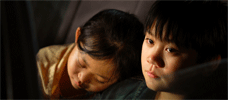
Children of Invention
2009 -
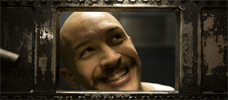
Bronson
2009 -

Trimpin
2009 -

Invisible Girlfriend
2009 -

500 Days of Summer
2009 -

Pontypool
2008 -

Children of Invention
2009 -
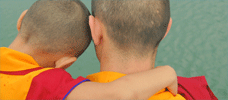
Unmistaken Child
2008 -

Big Fan
2009 -

World’s Greatest Dad
2009 -

Nollywood Babylon
2008 -
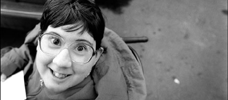
Shooting Beauty
2009 -

I Knew It Was You
2009 -

Helen
2008 -

Prom Night in Mississippi
2008 -
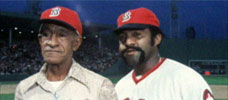
The Lost Son of Havana
2009 -

Mine
2009 -
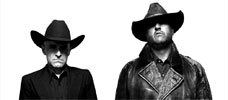
Stingray Sam
2009
We don’t do comments anymore, but you may contact us here or find us on Twitter or Facebook.



